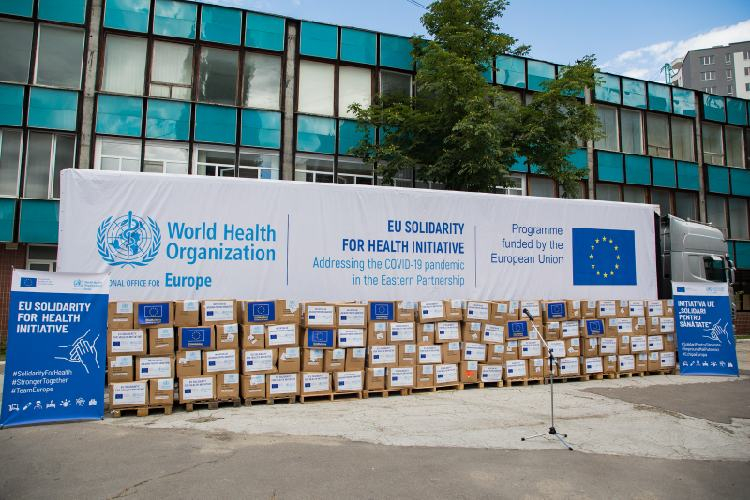A shipment of medical respirators and masks, goggles and gowns to enable health-care workers in the Republic of Moldova to respond effectively and safely to the COVID-19 pandemic arrived in the country today, IPN reports.
The delivery of 1.5 million pieces of personal protective equipment to the Republic of Moldova, funded by the European Union and procured by WHO, includes 1.210.000 medical masks, 348.000 N95 Respirators, 16.200 goggles, and 36.000 protective gowns. All items of equipment delivered have been checked to ensure they meet quality and safety standards for health-care workers on the frontline. They will be distributed to health-care facilities on both sides of the Nistru.
Peter Michalko, Ambassador of the European Union to the Republic of Moldova, said that in these difficult times, the European Union stands by the Republic of Moldova. The “Solidarity for Health” initiative is a concrete example on how the EU supports the Moldovan healthcare system to fight against the COVID-19 pandemic.
“The COVID-19 pandemic is a resilience test for health systems around the world, and the Republic of Moldova is not an exception. Thanks to development partners, international organizations, economic agents, who have provided humanitarian aid, we put all our efforts to manage this health crisis,” said Minister Viorica Dumbrăveanu.
Igor Pokanevych, WHO Representative and Head of the WHO Country Office in the Republic of Moldova, said the health-care workers are at the frontline of the response to COVID-19, placing them at higher risk of exposure to the virus. He is here because the number of cases of COVID-19 in Moldova rose to 20,000. It is important not to forget about the people who became infected, who died and about the involved medical personnel.
The donation of the personal protective equipment and medical and laboratory devices is part of the European Union’s response to the outbreak of COVID-19. On 27 March 2020, the European Union announced an assistance package of €30 million to help prevent, detect and respond to the COVID-19 pandemic in six countries of Eastern Europe and the Caucasus, including Belarus. The funds initially will be used to meet immediate emergency needs, such as procuring essential supplies and training for health-care workers, frontline responders and patients. In the longer term, the assistance will go towards strengthening the country’s capacity to respond to public health emergencies.

